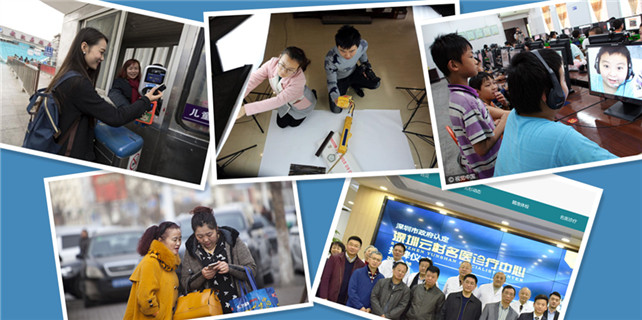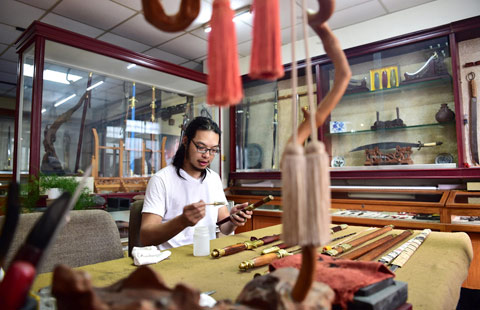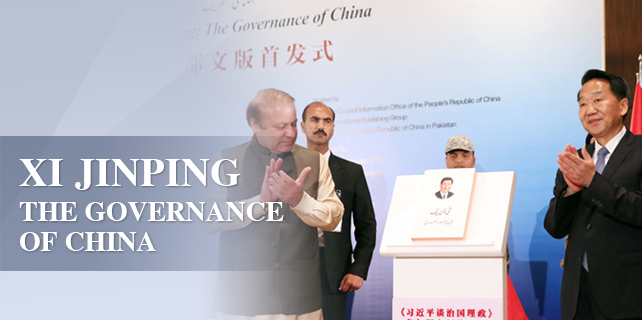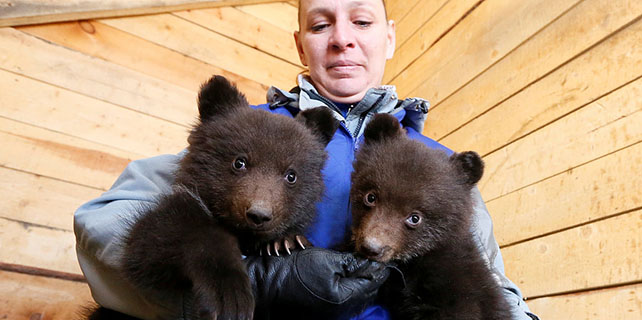Central bank renews cash injection, liquidity in tight balance
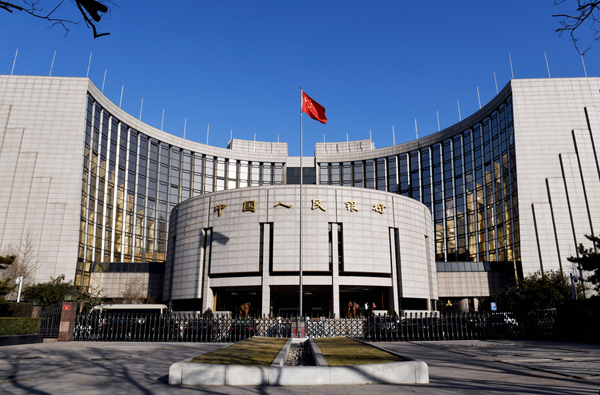 |
|
View of the headquarters of the People's Bank of China, China's central bank, in Beijing, Jan 12, 2017. [Photo/VCG] |
BEIJING - In a bid to maintain monetary equilibrium, China's central bank renewed its net cash injections via open market operations Tuesday after suspending the move for Monday.
The People's Bank of China (PBOC) conducted 80 billion yuan ($11.6 billion) of reverse repos, a process by which the central bank purchases securities from banks through bidding, with an agreement to sell them back in the future.
The injection saw a net 70 billion yuan pumped into the market Monday, offset by 10 billion yuan in maturing reverse repos.
The operations included seven-day reverse repos priced to yield 2.45 percent, 14-day contracts with a yield of 2.6 percent, and 28-day agreements with a yield of 2.75 percent, according to a central bank statement.
In addition, central bank lending worth 234.5 billion yuan into the market via medium-term lending facility (MLF) is set to mature Tuesday.
Analysts said the central bank's intention to keep liquidity stable is clear and Tuesday's operations will help ease the short-term liquidity squeeze.
The central bank announced lending worth 495.5 billion yuan into the market via MLF on Monday. The operation included 128 billion yuan that will mature in six months and 367.5 billion yuan that will mature in one year, with interest rates of 3.05 percent and 3.2 percent, respectively.
The MLF tool was first introduced in 2014 to help commercial and policy banks maintain liquidity by allowing them to borrow from the central bank by using securities as collateral.
After a 13-day halt, the central bank restarted reverse repo operations on April 13 and made a net cash injection of 70 billion yuan that week.
Statistics show that 190 billion yuan of reverse repo contracts are set to mature this week, from April 15 to April 21, but no repos or central bank bills are set to mature.
Researchers with Citic Securities said the market liquidity may remain in tight balance due to stricter regulatory scrutiny and the country's prudent and neutral monetary policy.
"The monetary policy is unlikely to relax in the short term as regulators will keep an eye on inflating asset bubbles and declining excess reserves," said Jiang Chao at Haitong Securities.
Adjusted growth of total social financing (TSF), a more comprehensive measure of the speed for credit expansion, decelerated notably to 15.6 percent in March from 16.4 percent in February.
Money market rates also climbed higher. The weighted average interbank offered rate and pledged repo rate edged up to 2.62 percent and 2.84 percent, respectively, in March.
Apart from raising the reverse repo rates in March, the central bank has also stepped up financial deleveraging efforts.
Chinese banks' excess reserves dropped to a historical low in February due to declining foreign reserves, said Jiang, adding the central bank's continuous cash withdrawal since late March would weigh on market supply.
Li Huiyong, chief economist at Shenwan Hongyuan Securities, remained a little more optimistic and predicted liquidity equilibrium in the near future.




